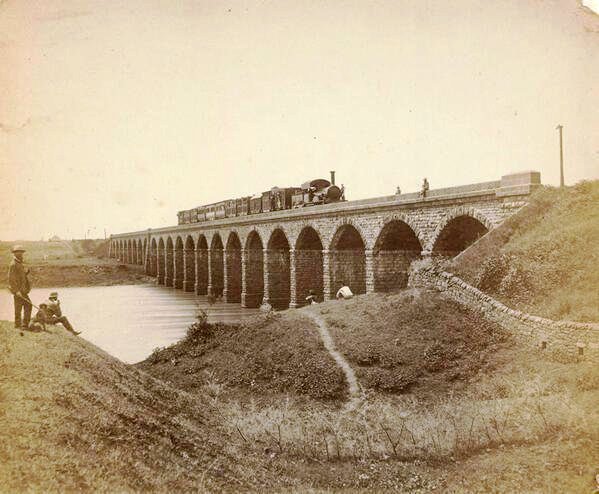The First Railway Line in India: Connecting Bombay and Thane
History Indian HistoryPosted by NewAdmin on 2025-01-30 09:07:35 |
Share: Facebook | Twitter | Whatsapp | Linkedin Visits: 29

The opening of the First railway line in India between Bombay (now Mumbai) and Thane on April 16, 1853 marked a significant milestone in the history of transportation and infrastructure in the country. This event was the beginning of the modern railway system in India, which would go on to play a crucial role in the economic, social, and political landscape of the subcontinent. The line was operated by the Great Indian Peninsula Railway (GIPR), one of the first major railway companies in India, and it spanned a distance of approximately 34 kilometers.
The opening of the Bombay-Thane railway line was a culmination of years of planning and investment, driven by the British colonial government and private British enterprises. The project was seen as a way to improve connectivity, facilitate the transportation of goods, and enhance the efficiency of the colonial administration. The initial railway track was a single track, and it was designed for Steam-powered trains, a technological innovation at the time. The first train journey on this route was a momentous event, with a ceremonial train carrying several prominent British officials, including the Governor of Bombay, Sir J. J. Whitley, and other dignitaries.
This railway line was initially used for passenger transport, with the journey between Bombay and Thane taking around one hour. It also provided a much-needed means of transporting raw materials, particularly cotton, from the hinterlands of Maharashtra to the port city of Bombay for export. The success of this first line demonstrated the potential of railways in transforming India's economic landscape by improving trade, connecting urban and rural areas, and facilitating the movement of people.
The opening of the Bombay-Thane line marked the beginning of an expansive railway network across India. Over the following decades, railway lines were constructed in various regions, leading to the development of a vast railway system that connected almost every part of the country by the early 20th century. The railways became an integral part of India's infrastructure, impacting not only the economy but also the social and cultural fabric of the nation. The introduction of the railway system played a vital role in the British colonial agenda, facilitating the transportation of goods and resources for Britain’s industrial needs, but it also laid the foundation for a modernized and interconnected India in the years to come.
Search
Categories
Recent News
- IIT Bombay Tragedy: Student's Fatal Leap from Hostel
- Chow Mein Chaos: Students' Suspension Sparks Controversy
- Hyderabad's Digital Safety Townhall: Unveiling Cyber Scams
- Hyderabad's Drug-Free New Year's Eve: A City's Vigilant Stand
- Mainpuri Murder: Taunts Turn Fatal in UP
- Political Firestorm: Rahul Gandhi's "Traitor" Accusation Sparks BJP Outrage
- Delhi Police Uncover Radical Links in Protester Arrests
- From Hobby to Thriving Business: The T-Shirt Startup's Success Story
Popular News
- Navigating IPO Market Dynamics Amid Volatility and Regulatory Changes
- Massive Worldwide Microsoft Outage Disrupts Multiple Sectors
- Panjapur Bus Stand to Reshape TNSTC Routes
- తెలుగుదేశం పార్టీ - పేదరికాన్ని నిర్మూలించడంలో వాగ్దానం
- Universities Embrace Remote Learning Technologies Amidst Ongoing Pandemic